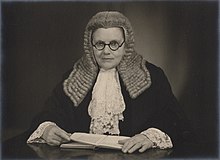With regard to the legal community, the Bar Council of India has established stringent norms and a code of conduct. Legal ethics, which may appear ancient in other nations but are an essential component of being a lawyer in India, are what give the legal profession its reputation of being extremely honourable.
Rule 36 of the Indian Bar Council According to the rules, Indian law companies and lawyers are not permitted to promote their services in the market either offline or online. According to Rule 36 of the Bar Council of India Rules, an advocate in India is not permitted to directly or indirectly solicit clients or advertise through circulars, advertisements, personal communications, or interviews, or to provide or encourage newspaper commentary about their cases, or to create photographs that will be published.
A lawyer’s nameplate or signboard must be of a suitable size and must not state that the person is or has ever been the president of a bar council, a member of any association, connected to any person or group, a judge, or an advocate general.
The Bar Council of India (BCI) has not, however, fully disregarded the developments in the generation that has undergone liberalisation. The BCI recently agreed to include a provision allowing advocates to keep websites about themselves or their law firms to provide information about their businesses and assist people in making more informed decisions to Rule 36 of the BCI Rules.
Any information that is not in accordance with the information authorised by the Bar Council of India will be regarded as a violation of Rule 36, and the advocate will be held accountable for misconduct under Section 35 of the Advocates Act, 1961.
“Law is not a commodity, not briefs, not products,” Justice Krishna Iyer famously remarked. “The heaven of commercial competition should not vulgarise the legal profession.” However, courts now hold the belief that “legal services” are included in “services” provided to clients. Lawyers are viewed as service providers who must answer to their clients if their services are inadequate.
The outright ban on lawyer advertising was repealed and somewhat relaxed in 2008. The amendment gave lawyers the option to post their names, contact information, email addresses, and professional and educational backgrounds on websites of their choosing that included legal service providers.
Without exception, the developing legal services industry is advantageous to all clients of those services. The right of consumers to free and fair competition is fundamental in the era of consumerism and competition law and cannot be overridden by any other factor. Trade in legal services places a strong emphasis on the advantages consumers receive from the industry, especially the level of service provided in specific domains.
Other countries have entirely different regulations governing advertising. In the USA, the market for lawyer advertising is well-developed, and lawyers are free to advertise their areas of expertise and the cases they handle.
Currently, a variety of legal-tech platforms are emerging in the legal sector, allowing attorneys to publish their credentials, areas of specialisation, work history, etc., to give a litigator options. Word-of-mouth has long been a key component of the legal industry. Now is the moment for the Indian legal sector to accept change and engage in good brand promotion. To prevent malpractice, the Legislature must nonetheless create a set of rules for advertising the legal profession.

















